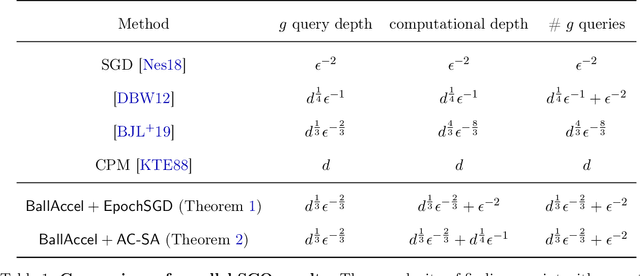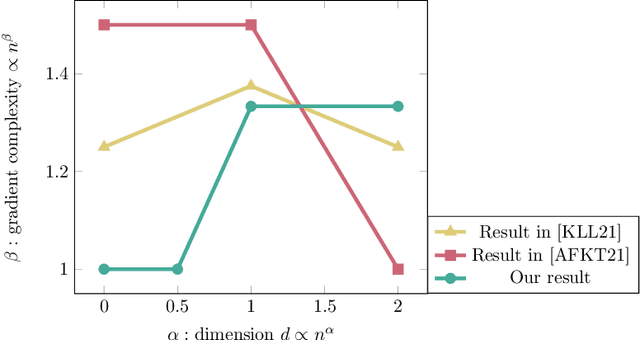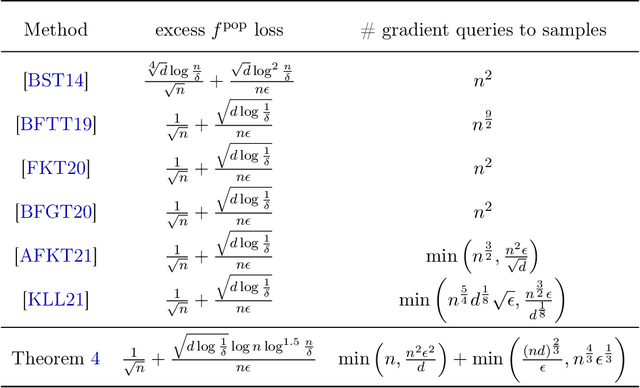ReSQueing Parallel and Private Stochastic Convex Optimization
Paper and Code
Jan 01, 2023


We introduce a new tool for stochastic convex optimization (SCO): a Reweighted Stochastic Query (ReSQue) estimator for the gradient of a function convolved with a (Gaussian) probability density. Combining ReSQue with recent advances in ball oracle acceleration [CJJJLST20, ACJJS21], we develop algorithms achieving state-of-the-art complexities for SCO in parallel and private settings. For a SCO objective constrained to the unit ball in $\mathbb{R}^d$, we obtain the following results (up to polylogarithmic factors). We give a parallel algorithm obtaining optimization error $\epsilon_{\text{opt}}$ with $d^{1/3}\epsilon_{\text{opt}}^{-2/3}$ gradient oracle query depth and $d^{1/3}\epsilon_{\text{opt}}^{-2/3} + \epsilon_{\text{opt}}^{-2}$ gradient queries in total, assuming access to a bounded-variance stochastic gradient estimator. For $\epsilon_{\text{opt}} \in [d^{-1}, d^{-1/4}]$, our algorithm matches the state-of-the-art oracle depth of [BJLLS19] while maintaining the optimal total work of stochastic gradient descent. We give an $(\epsilon_{\text{dp}}, \delta)$-differentially private algorithm which, given $n$ samples of Lipschitz loss functions, obtains near-optimal optimization error and makes $\min(n, n^2\epsilon_{\text{dp}}^2 d^{-1}) + \min(n^{4/3}\epsilon_{\text{dp}}^{1/3}, (nd)^{2/3}\epsilon_{\text{dp}}^{-1})$ queries to the gradients of these functions. In the regime $d \le n \epsilon_{\text{dp}}^{2}$, where privacy comes at no cost in terms of the optimal loss up to constants, our algorithm uses $n + (nd)^{2/3}\epsilon_{\text{dp}}^{-1}$ queries and improves recent advancements of [KLL21, AFKT21]. In the moderately low-dimensional setting $d \le \sqrt n \epsilon_{\text{dp}}^{3/2}$, our query complexity is near-linear.
 Add to Chrome
Add to Chrome Add to Firefox
Add to Firefox Add to Edge
Add to Edge